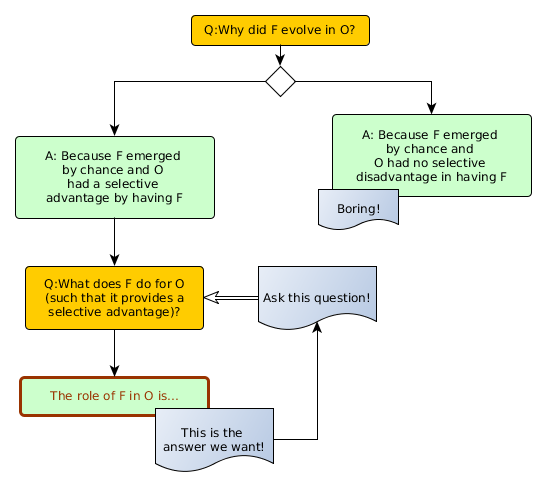I have been observing the rampant closing of questions based on being a duplicate of "If a trait would be advantageous to an organism, why hasn't it evolved?". I am of the opinion it is currently being (ab)used as an invalid reason to bury valid questions. Not only that, it's overuse is turning it into a cliche. I appreciate the efforts from the community that have gone into this question, but as of now other questions are being funneled into its webs without solid reasons.
Specifically, the community question deals with "Why not?", and not with "Why?". Of course, the community question is great to close questions like why eagles don't have jet engines and leopards don't grow shotguns. But the argument that it answers the "Why did X evolve" is incorrect, and hence its use is being quite inappropriate at times. For example, take the recently closed question "Why do insects have 6 legs?". How on earth do the answers of "If a trait would be advantageous to an organism, why hasn't it evolved?" answer this question? OP did not ask why insects didn't evolve 7 legs because the 7th would make a nice spare. Instead, OP asked a valid question why 6 appendages is so strongly selected for. The speciation in the animal Kingdom is extreme in the Insects. And the fact they all have 6 legs is henceforth a valid lead to look for its benefits. That is not only a valid question, it's an awesome one. To see this mod-closed based on flawed grounds makes me sad. Please, stop this aberrant use and clichefication of "If a trait would be advantageous to an organism, why hasn't it evolved?"
EDIT - To add an example where the community question is appropriate IMO: What, if anything, would prevent flying fishes evolving to be capable of extended flight?. This question is highly hypothetical and suitable to be closed as a duplicate of the community question. Some people question the difference between the community question's "Why not" versus "Why" nature. The insect question is "Why?", which is a valid question. The flying fish question is a "Why not". The latter, IMO, would be a definite target being a duplicate of the community question, being hypothetical and speculative in nature. The 6-appendage insect question is based on an existing phenomenon, namely a highly conserved body plan of insects.

